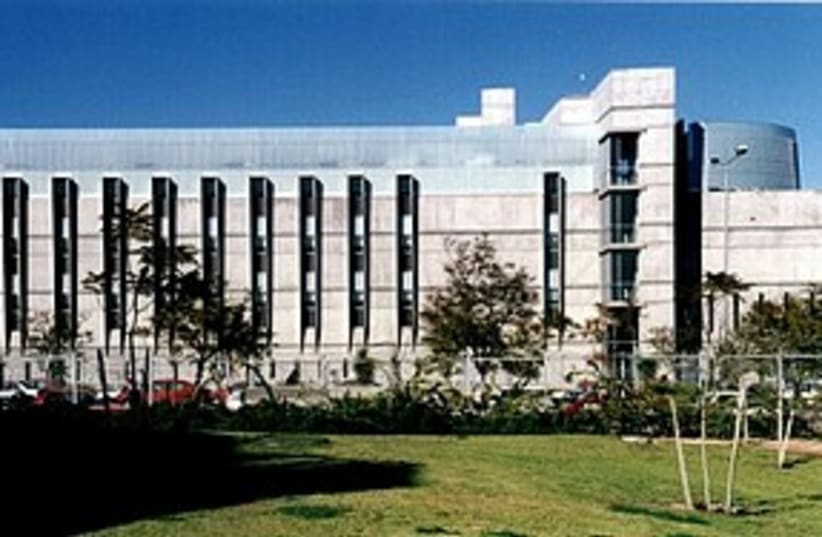RELATED:Johannesburg U mulls cutting ties with BGUIn a statement released on Wednesday, the university said “the Senate of the University of Johannesburg (UJ) today voted to allow its formal relationship with Ben-Gurion University (BGU) in Israel to lapse on 1 April 2011. This was one of two options put to the vote in the Senate, the second being to allow the formal relationship with BGU to continue and to develop bilateral relations with both BGU and Palestinian universities.Sixty percent of the Senate (72 members present) voted to allow the Memorandum of Understanding with BGU to lapse, while the balance 40 percent (45 members present) voted for bilateral agreements.”Ben Gurion University responded regretfully at the University of Johannesburg's decision, saying that the South African university's decision to sever the agreement designed to solve water contamination issues in a reservoir near Johannesburg will mostly hurt South African residents.University President Prof. Rivka Carmi said that "the only losers in this decision are the people of South Africa."In the official letter, BGU said it is still committed to continuing ongoing water, health care, and sustainable development collaborative work with Palestinian researches.The agreement doesn’t mean that individual academics at UJ wouldn’t be able to pursue academic collaboration with counterparts at BGU, but they would be carried out without formal institutional arrangements.The vote followed a campaign launched by UJ in September 2010 with a petition signed by more than 250 South African academics, with the support of Archbishop Desmond Tutu, that called on UJ to cut ties with BGU over what they claim is the university’s active support for the Israeli military.Last Wednesday, UJ held a debate entitled "The Politics of Water Research and the Ethics of Academic Engagement - Should UJ terminate its water research with Israel?", to discuss whether or not to cut ties with BGU. The seminar discussed a report released the day earlier by UJ entitled "Findings on Ben-Gurion University of the Negev: Institutional complicity and active collaboration with Israeli military, occupation and apartheid practices."BGU issued a response on the day of the debate, calling the “a collection of lies and mistruths about BGU and the State of Israel” adding that “it would be unfortunate to cancel a research agreement that is meant solely to improve the quality of life for the residents of South Africa.”
University of Johannesburg votes to sever ties with BGU
South African university votes for academic boycott, ends cooperation on water purification project; Ben-Gurion University responds regretfully.

RELATED:Johannesburg U mulls cutting ties with BGUIn a statement released on Wednesday, the university said “the Senate of the University of Johannesburg (UJ) today voted to allow its formal relationship with Ben-Gurion University (BGU) in Israel to lapse on 1 April 2011. This was one of two options put to the vote in the Senate, the second being to allow the formal relationship with BGU to continue and to develop bilateral relations with both BGU and Palestinian universities.Sixty percent of the Senate (72 members present) voted to allow the Memorandum of Understanding with BGU to lapse, while the balance 40 percent (45 members present) voted for bilateral agreements.”Ben Gurion University responded regretfully at the University of Johannesburg's decision, saying that the South African university's decision to sever the agreement designed to solve water contamination issues in a reservoir near Johannesburg will mostly hurt South African residents.University President Prof. Rivka Carmi said that "the only losers in this decision are the people of South Africa."In the official letter, BGU said it is still committed to continuing ongoing water, health care, and sustainable development collaborative work with Palestinian researches.The agreement doesn’t mean that individual academics at UJ wouldn’t be able to pursue academic collaboration with counterparts at BGU, but they would be carried out without formal institutional arrangements.The vote followed a campaign launched by UJ in September 2010 with a petition signed by more than 250 South African academics, with the support of Archbishop Desmond Tutu, that called on UJ to cut ties with BGU over what they claim is the university’s active support for the Israeli military.Last Wednesday, UJ held a debate entitled "The Politics of Water Research and the Ethics of Academic Engagement - Should UJ terminate its water research with Israel?", to discuss whether or not to cut ties with BGU. The seminar discussed a report released the day earlier by UJ entitled "Findings on Ben-Gurion University of the Negev: Institutional complicity and active collaboration with Israeli military, occupation and apartheid practices."BGU issued a response on the day of the debate, calling the “a collection of lies and mistruths about BGU and the State of Israel” adding that “it would be unfortunate to cancel a research agreement that is meant solely to improve the quality of life for the residents of South Africa.”